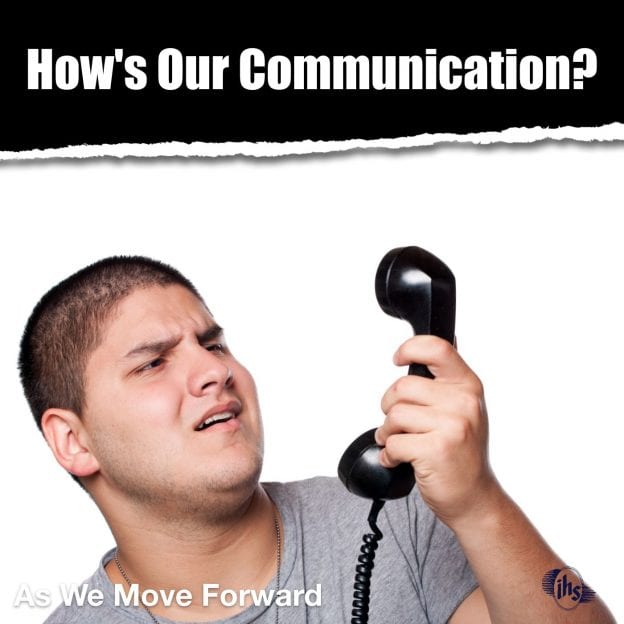
There is an old party game that many of us have probably played. It is called Telephone. Participants sit in a circle. Someone whispers a phrase to the person next to them. This continues until the last person says out loud what he heard. I have played this game several times. I have never seen a time when the final message bears any resemblance to the original message. This activity only serves to illustrate how difficult it is to communicate exactly what we intend to be certain is understood by the person hearing the message.
It is an established fact that eyewitness accounts of the same event can vary widely. This is the major reason witnesses to a major event such as a crime or an accident are interviewed separately. It is also why legal proceedings require the testimony of two or more witnesses. It is not necessarily that people do not tell the truth in these circumstances. It is just that our minds see and hear things based on what we expect to.
Parents know this phenomenon. Children often act differently than we think they will. When we ask them, they will often have a different version of what we told them. This is one reason it is important to be as precise and consistent as we can be in all our communication. Most of the time our communication works well. We know less of what is expected of us, and we can complete our communication with others easily and with mutually satisfying results.
It is unusual or unexpected situations that put our communication skills to the test. Situations like moving to a new place, beginning a new job or having a child can put stress on our communication. Even in these situations, we have enough in common with the people in our relationships to get our thoughts and feelings across fairly well.
It is in times of crisis that these breakdowns in communication can become serious. A crisis tends to confuse communication. In uncertainty, the tendency to hear what we want to hear can become overwhelming. That may be due at least in part to a real need to regain control over some part of our life.
We get frightened in a crisis, and our fear makes us less open to hearing what someone is saying, especially when that is in conflict with what we believe to be true. Social media really doesn’t help make this communication process work any better. In an environment where it is difficult to distinguish fact from opinion, it can be very difficult to honestly and openly share ideas and have a true discussion, especially where there may be differing points of view.

As we move forward, especially in times of crisis, it is helpful to consider the emotional context of our communication. If the person or persons we are communicating with seems upset or defensive, it might be good to resist the temptation to respond in an argumentative fashion and listen to what they are saying.
Since a crisis can bring out both the best and worst in us, we should be sensitive to the underlying tone. If we can remain rational and objective in our communication, and if we can keep our communication direct and concise, we can avoid the game of Telephone. We can keep the end message as clear and accurate as possible. As we move forward, let’s make that type of communication our goal and the standard.
If you would like to receive new As We Move Forward posts, please subscribe to the As We Move Forward mailing list by clicking here. I release entries on a bi-weekly basis.We have a podcast containing the As We Move Forward articles read by Jae Bloom.

